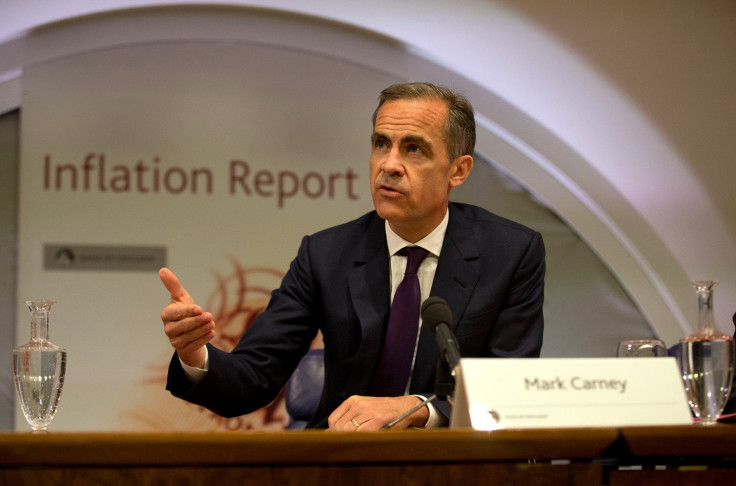Mark Carney hints possible interest rate rise 'at turn of year'

Bank of England governor Mark Carney said the central bank may raise interest rates "at the turn of this year".
The central bank had lowered interest rates to near-zero levels during the 2008 global financial crisis. While the economy is showing signs of recovery, the central bank expects rate increases to be gradual, and limited to a level below past averages.
"It would not seem unreasonable to me to expect that once normalisation begins, interest rate increases would proceed slowly and rise to a level in the medium term that is perhaps about half as high as historical averages," Carney said in a speech at Lincoln Cathedral.
"In my view, the decision as to when to start such a process of adjustment will likely come into sharper relief around the turn of this year."
He added that interest rates are expected to rise over the next three years, reaching "about half as high as historical averages" of about 4.5%. Interest rates have been at 0.5% for the past six years.
Short term interest rates have averaged around 4.5% since the Bank's inception three centuries ago, the same average as during the pre-crisis period when inflation was at target, Carney noted. The average pace of tightening since the adoption of inflation targeting in 1992 was around 50 basis points per quarter.
Nevertheless, the same pace may not be applicable now, as shocks to the economy could change the timing and magnitude of rate raises, according to the governor.
In addition, the diverging US monetary policy stance and its impact on UK inflation and economic activity would be a consideration while deciding on the rate increase.
Carney was also concerned about the country's current account deficit, the largest in the advanced economies, saying "the right policy mix leans towards tighter fiscal, more accommodative monetary and tighter macro prudential policies".
"Given these considerations, the MPC [Monetary Policy Committee] will have to feel its way as it goes, monitoring a wide range of indicators and adjusting the pace and degree of bank rate as it learns about the effects of higher interest rates on the economy," he said.
"There is, in fact, a wide distribution of possible outcomes around any expected path for bank rate, reflecting the inevitability that the economy will be buffeted by shocks and that monetary policy will have to adjust accordingly."
© Copyright IBTimes 2024. All rights reserved.






